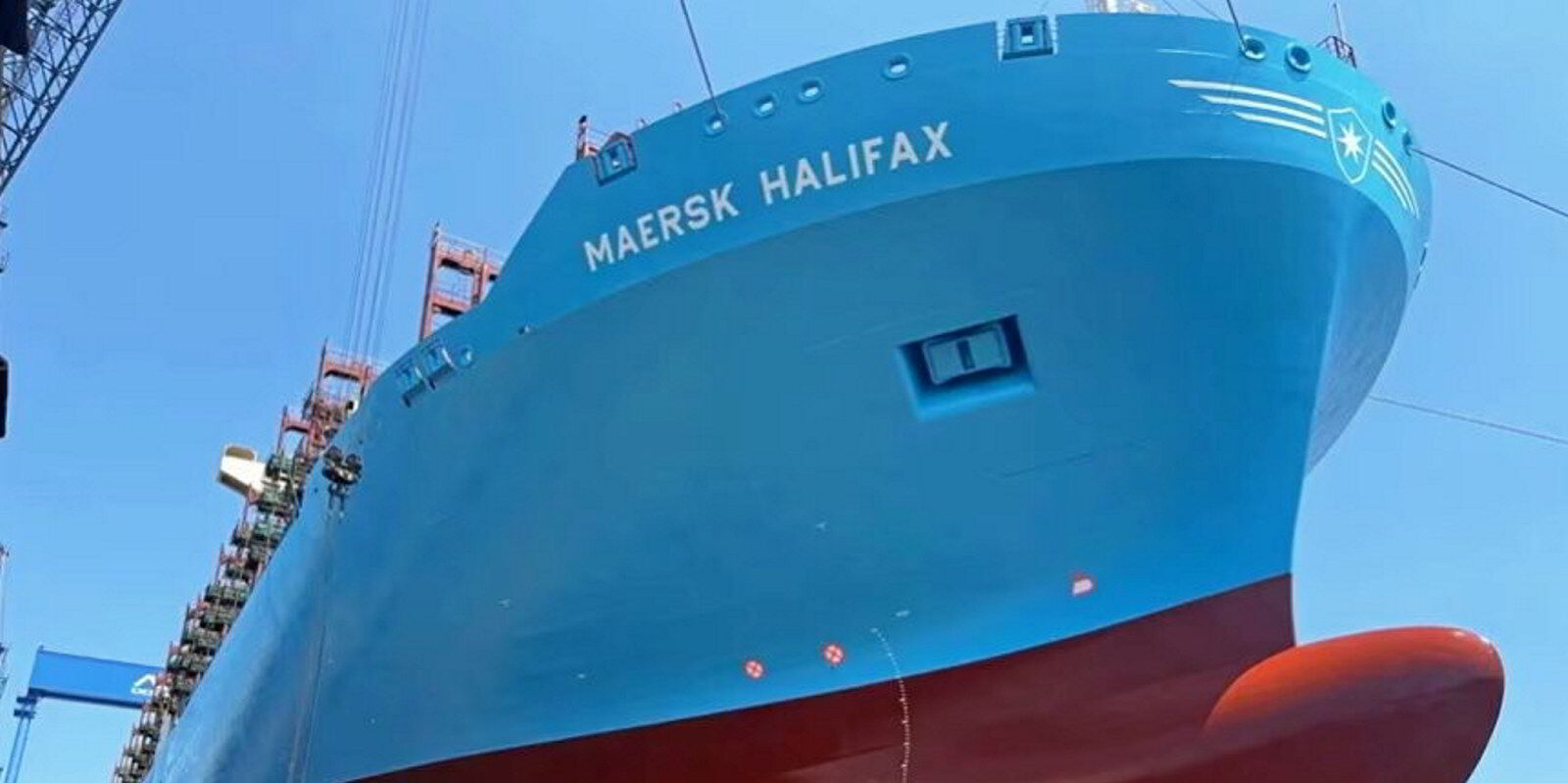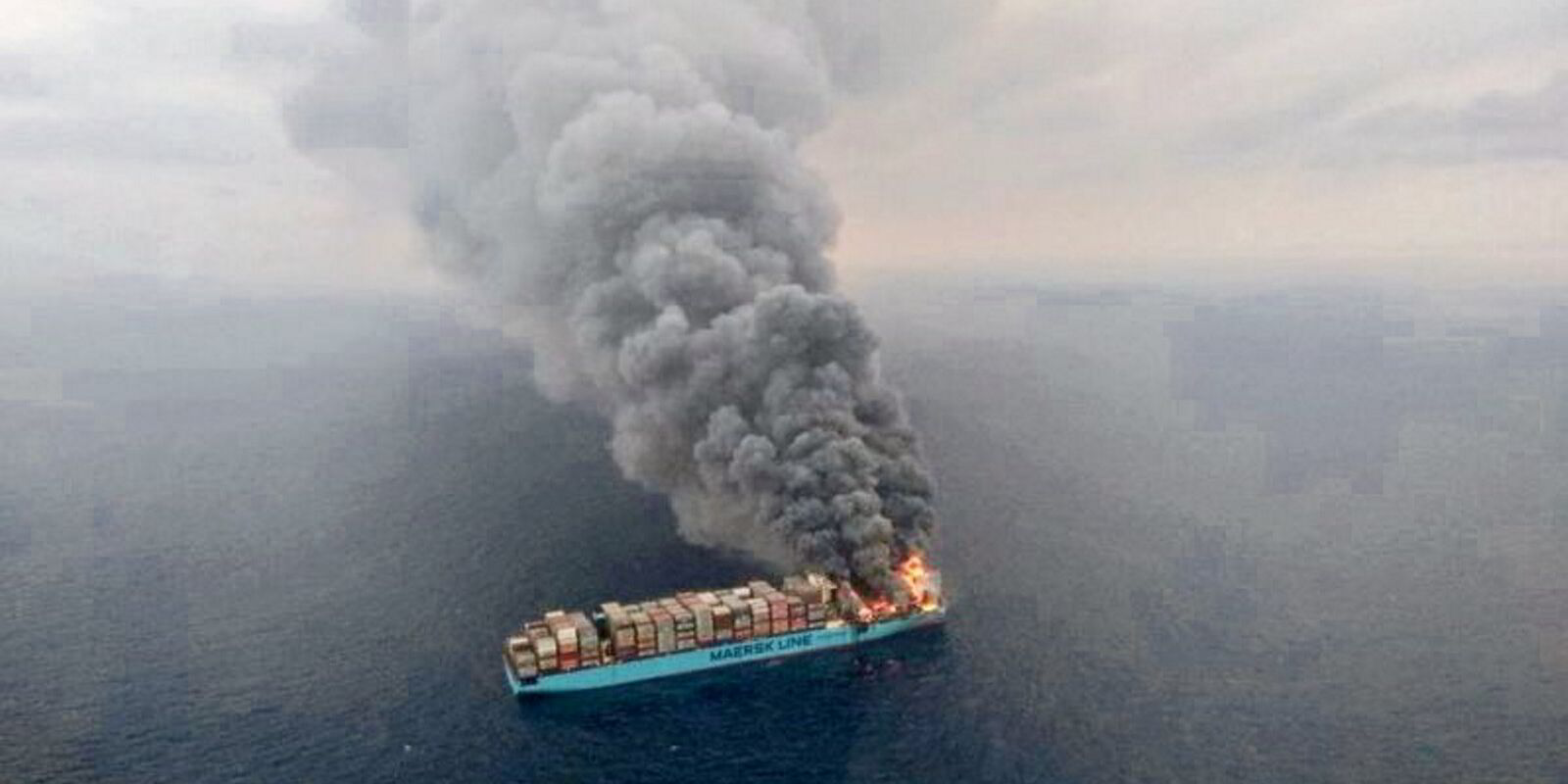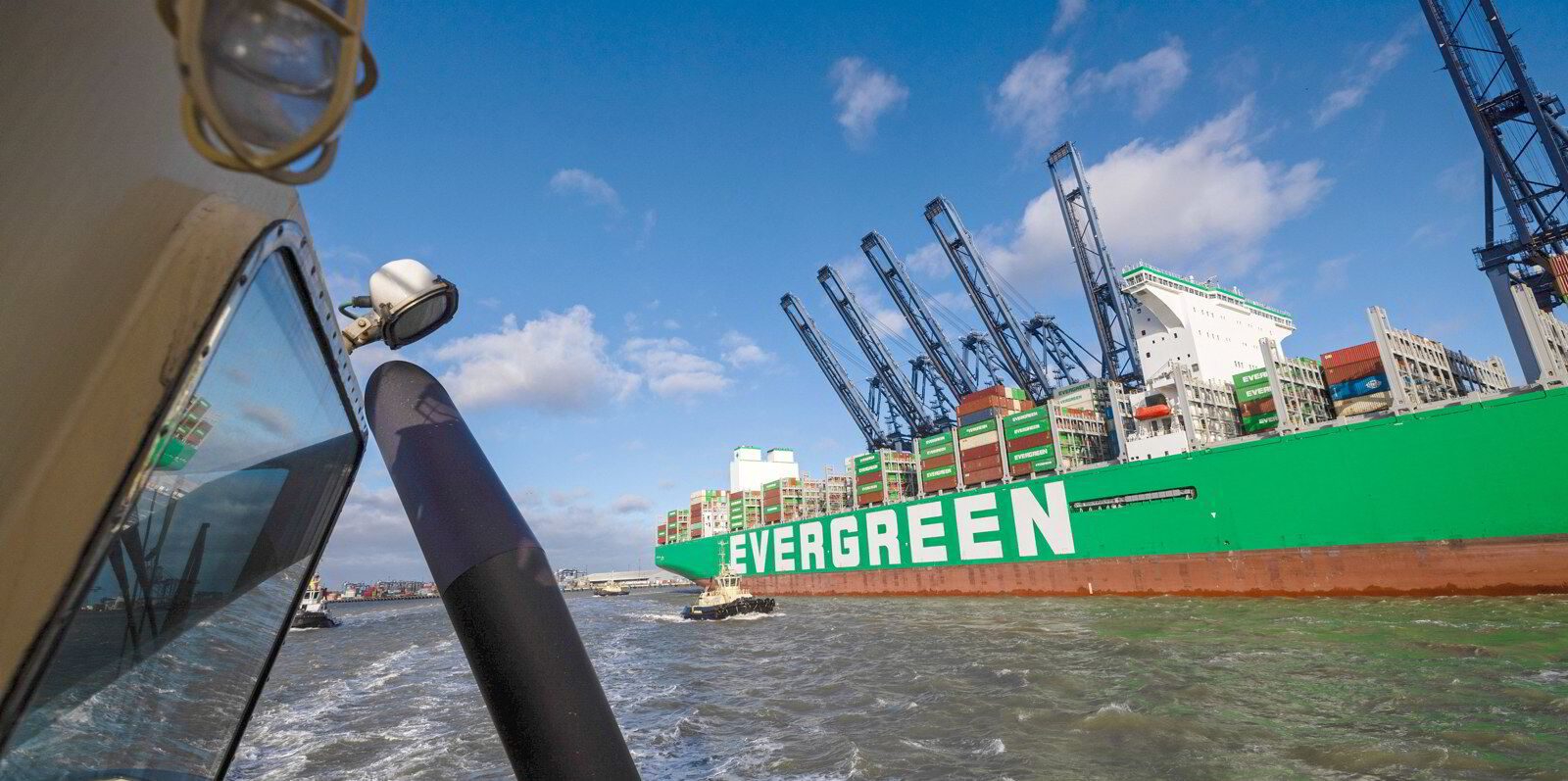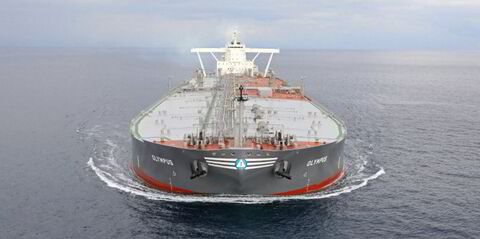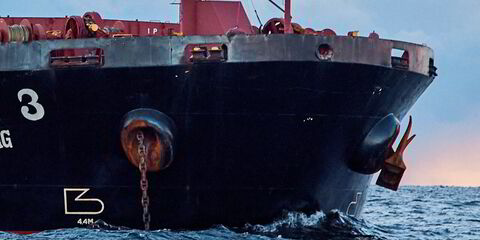AP Moller-Maersk has carried out the first conversion of a large boxship to run on methanol.
The 15,226-teu Maersk Halifax (built 2017) is now a dual-fuel vessel after 88 days of retrofitting at Zhoushan Xinya Shipyard in China.
“Following the completion of the sea trials, Maersk Halifax has returned to operation and is now servicing our customers on the transpacific trade,” Maersk said.
Maersk was a pioneer in methanol-fuelled ships and captured headlines this year by widening its future fuel bet to include LNG.
The Maersk Halifax is the renamed Maersk Honam, which made headlines in 2018 following a serious fire off Oman that killed five seafarers.
The viable stern section was rebuilt at HD Hyundai Heavy Industries in 2019 and joined to a new bow.
Leonardo Sonzio, the group’s head of fleet management and technology, said the engine conversion was done by MAN Energy Solutions.
Besides replacing machine parts and thereby making the engine able to operate on methanol, the retrofit operation involved adding new fuel tanks, a fuel preparation room and fuel supply system.
The hull has also been expanded to accommodate the fuel tanks.
The ship was extended by 15 metres to 368 metres in length, increasing the capacity to 15,690 teu.
Sonzio added: “Since we set the ambitious climate goal of reaching net-zero emissions by 2040, we have explored the potential in retrofitting existing vessels with dual-fuel engines.
“In the coming year, we will take learnings from this first conversion of a large vessel. Retrofits of existing vessels can be an important alternative to newbuilds in our transition from fossil fuels to low-emission fuels.”
The Maersk Halifax, which is one of 11 vessels in Maersk’s Hong Kong class, departed anchorage at Zhoushan Xinya on 4 November.
In October, Maersk revealed that it had sourced more green methanol for its new ships in China.
In what it called a major long-term deal, it has signed up with LONGi Green Energy Technology for offtake from 2026.
The shipowner said the agreement means it is making progress in securing enough methanol for its owned fleet of seven dual-fuel vessels on the water.
A total of 25 dual-fuel methanol vessels are in operation or on order.
